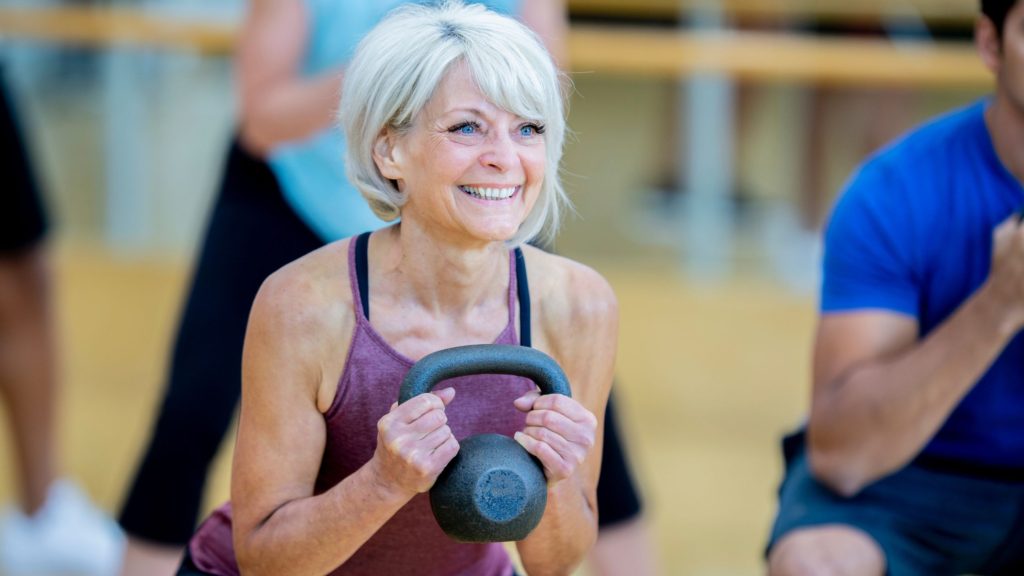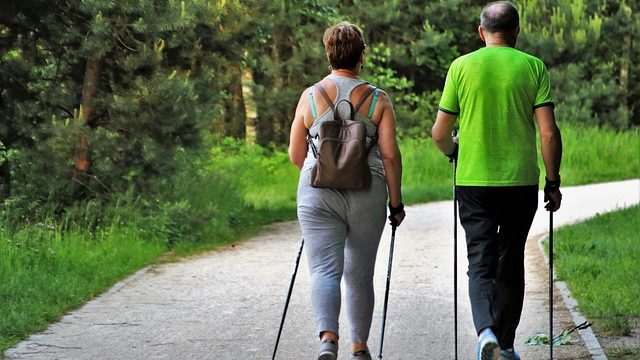Last updated on April 11th, 2025 at 05:28 pm

A recent study has found that physical activity can improve mild to moderate mental health conditions such as depression, anxiety and distress. This very important study was published online in The British Journal of Sports Medicine1 and concludes that physical activity should be a mainstay approach in the management of depression, anxiety and psychological distress.
How was the research conducted? There’s a link between toxic stress and poor health, but how and why physical activity positively affects our mental health and what does it mean for us? Let’s find out in this article.
The link between physical activity & mental health
We all know the beneficial effect of staying physically active on our physical health, for example, simply adopting regular brisk walking can reduce the risk of heart attack, exercises are also important for the health of muscles. In many musculoskeletal pain cases like osteoarthritis knee, cervical spondylitis, and mild disc bulge, exercises are considered and the first choice of treatment.
Physical activity does have a positive effect on our day-to-day mental stress, and even good sexual health in men is linked to healthy brain memory function, according to a different study. But this time, researchers were curious whether physical activity can be the mainstay of management of mild to moderate mental health conditions such as depression, anxiety and distress. Presently, various psychotherapy and pharmacotherapy is the main treatment for patients with depression, anxiety or psychological distress.
According to the author of this scientific paper, previous studies do suggest that physical activity may have similar effects to psychotherapy and pharmacotherapy for patients with these mental health symptoms. However, in this new study the researchers were trying to establish that instead of these interventions, physical activity can be the first choice of treatment.
For this, the researchers planned to review the existing research papers and shortlisted adult participants of age more than 18 years and they were a mix of healthy adults, people with mental health disorders and people with various chronic diseases from these research data.
The researchers searched for databases and shortlisted peer-reviewed journal articles published in the English language from inception to 1 January 2022. They reviewed a total of 97 existing studies that included a whopping number of 1,039 unique clinical trials. Out of this, the scientist selected 128,119 participants those who fit the selection criteria.
How physical activity affects symptoms of depression, anxiety, distress

All the collected data were carefully analysed. The study found a positive link between physical activity and mental health symptoms. They found that physical activity can improve symptoms of depression and anxiety for all groups of people. But the amount of improvement was not equal for different groups of people.
The degree of improvement varied with the greatest benefits seen in people with depression, pregnant and postpartum women, healthy individuals, and people diagnosed with HIV or kidney disease.
Effect of different intensity of exercises on mental depression
The study also revealed that almost all types of physical activity, including aerobic, resistance exercises, mixed-mode exercise, and yoga, had a beneficial effect on mental health symptoms. Interestingly, another study indicates that even negative emotions like anger, boredom, sadness, and anxiety can be useful..
However, higher-intensity exercises had a greater effect on depression and anxiety compared to lower-intensity exercises.
Effect of exercise duration in anxiety, mental health
According to the study, the duration of workout sessions also affects the positive outcome on our mental health. The researchers found that the longer duration intervention had smaller effects compared to shorter exercise sessions.
This may be because people may have a harder time sticking to longer interventions, or they may have had high expectations at the beginning of the intervention that faded over time. It is also possible that longer interventions do not provide enough progression of physical activity dose, leading to a reduction in their effectiveness.
What it means for us
This study once again reminds all of us why it is so important to lead a physically active lifestyle. It is not only crucial for our physical health, but it is also equally important for our mental well-being. However, if you are passing through mild to moderated depression, and anxiety, you must get outdoors and start exercising without any further delay.
As we just learned, the study also finds that moderate to high-intensity physical activity is in particular more effective than low-intensity physical activity. However, this is only recommended to young adults, for the elderly and seniors moderate walking or brisk walking is sufficient to get a desirable result. Furthermore, a person with a physical disability can perform chair exercises.
Coming back to moderate to intense exercises, here are common exercises that you can choose from including running, jogging, cycling, swimming, jumping, resistance exercises, strengthening exercises and so on.
To a big relief, the study also suggests that it is not necessary to stick to a long workout session, even shorter physical activity has a positive effect on mental health which is easier for most of us to comply with. Taking this into account, choose high-intensity exercise, let’s take cycling, and performing it for a short 15-20 minutes duration makes sense rather than a 45-minute long session of aerobics.
Finally, the study also adds support to public mental health guidelines that recommend moderate to vigorous physical activity to improve mental health.
Keep Reading: Regular Exercise Improves Immunity To Fight COVID-19 Infection|Study
The author is a physiotherapist who has been practising for the last 17 years. He holds a Bachelor's in Physiotherapy (BPT) from SVNIRTAR (Swami Vivekananda National Institute of Rehabilitation and Research), one of the prestigious physiotherapy schools in India.
Whatever he learns dealing with his patient, he shares it with the world through blogs and e-books. He also owns a YouTube channel, "Sunit Physiotherapist" with over 8 lakh active subscribers. Here, he shares everything he gets to learn serving the patient.





